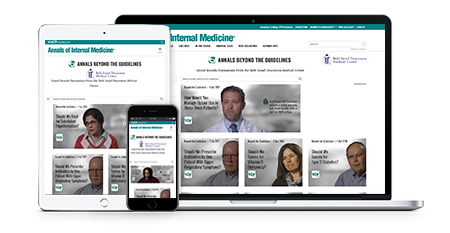Annals Beyond the Guidelines
Acute diverticulitis, which refers to inflammation or infection, or both, of a colonic diverticulum, is a common medical condition that may occur repeatedly in some persons. It most often manifests with left-sided abdominal pain, which may be associated with low-grade fever and other gastrointestinal symptoms. Complications may include abscess, fistula formation, perforation, and bowel obstruction. The American College of Physicians recently published practice guidelines on the diagnosis and management of acute diverticulitis, the role of colonoscopy after resolution, and interventions to prevent recurrence of this condition. Among the recommendations were the use of abdominal computed tomography (CT) scanning in cases where there was diagnostic uncertainty, initial management of uncomplicated cases in the outpatient setting without antibiotics, referral for colonoscopy after an initial episode if not performed recently, and discussion of elective surgery to prevent recurrent disease in patients with complicated diverticulitis or frequent episodes of uncomplicated disease. Here, 2 gastroenterologists with expertise in acute diverticulitis debate CT scanning for diagnosis, antibiotics for treatment, colonoscopy to screen for underlying malignancy, and elective surgery to prevent recurrent disease.



